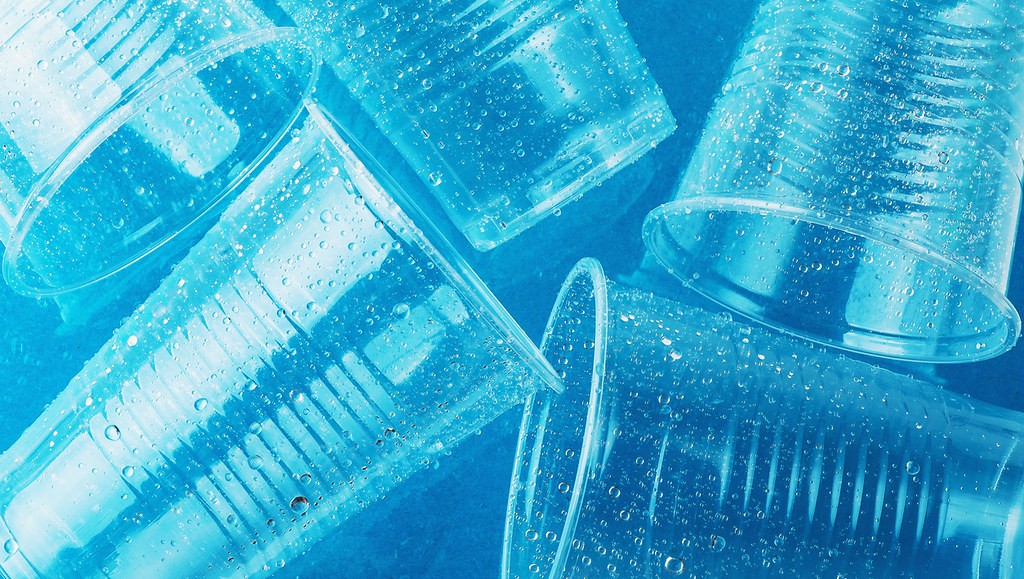
The team has shown how their chemical recycling method not only speeds up the process, it can also be converted into a new product – a biodegradable solvent – which can be sold for use in a wide variety of industries including cosmetics and pharmaceuticals.
Bioplastics, made from polylactic acid (PLA), are becoming increasingly common in products such as disposable cups, packaging materials and even children’s toys. Typically, once they reach the end of their useful life, they are disposed of in landfill or composted, biodegrading over periods of up to several months.
In a new study, researchers have shown that a chemical process, using a zinc-based catalyst developed at the University of Bath and methanol, can be used to break down real consumer plastics and produce the green solvent, called methyl lactate. Their results are published in the journal Industrial & Engineering Chemistry Research.
The team tested their method on three separate PLA products– a disposable cup, some 3D printer waste, and a children’s toy. They found the cup was most easily converted to methyl lactate at lower temperatures, but even the bulkier plastic in the children’s toy could be converted using higher temperatures.
Professor Matthew Jones from the University of Bath’s Centre for Sustainable & Circular Technologies said: “It is exciting to see our catalysts being used for real materials from a variety of different applications. It is great to see that our catalysts are stable to additives in the polymer.”
Lead researcher Professor Joe Wood, at the University of Birmingham, said: “The process we’ve designed has real potential to contribute to ongoing efforts to reduce the amount of plastic going into landfill or being incinerated creating new valuable products from waste.
“Our technique breaks down the plastics into their chemical building blocks before ‘rebuilding’ them into a new product, so we can guarantee that the new product is of sufficiently high quality for use in other products and processes.”
The chemical process has been tried up to 300 ml, so next steps would include scaling up the reactor further before it can be used in an industrial setting. The research was funded by the Engineering and Physical Sciences Research Council.
Luis A Román-Ramírez, Paul McKeown, Chanak Shah, Joshua Abraham, Matthew D Jones and Joseph Wood (2020) “Chemical Degradation of end-of-life Poly(lactic acid) into Methyl Lactate by a Zn(II) Complex” is published in Industrial & Engineering Chemistry Research. DOI: 10.1021/acs.iecr.0c01122
Source
University of Bath, press release, 2020-05-21.
Supplier
University of Bath
University of Birmingham
Share
Renewable Carbon News – Daily Newsletter
Subscribe to our daily email newsletter – the world's leading newsletter on renewable materials and chemicals










